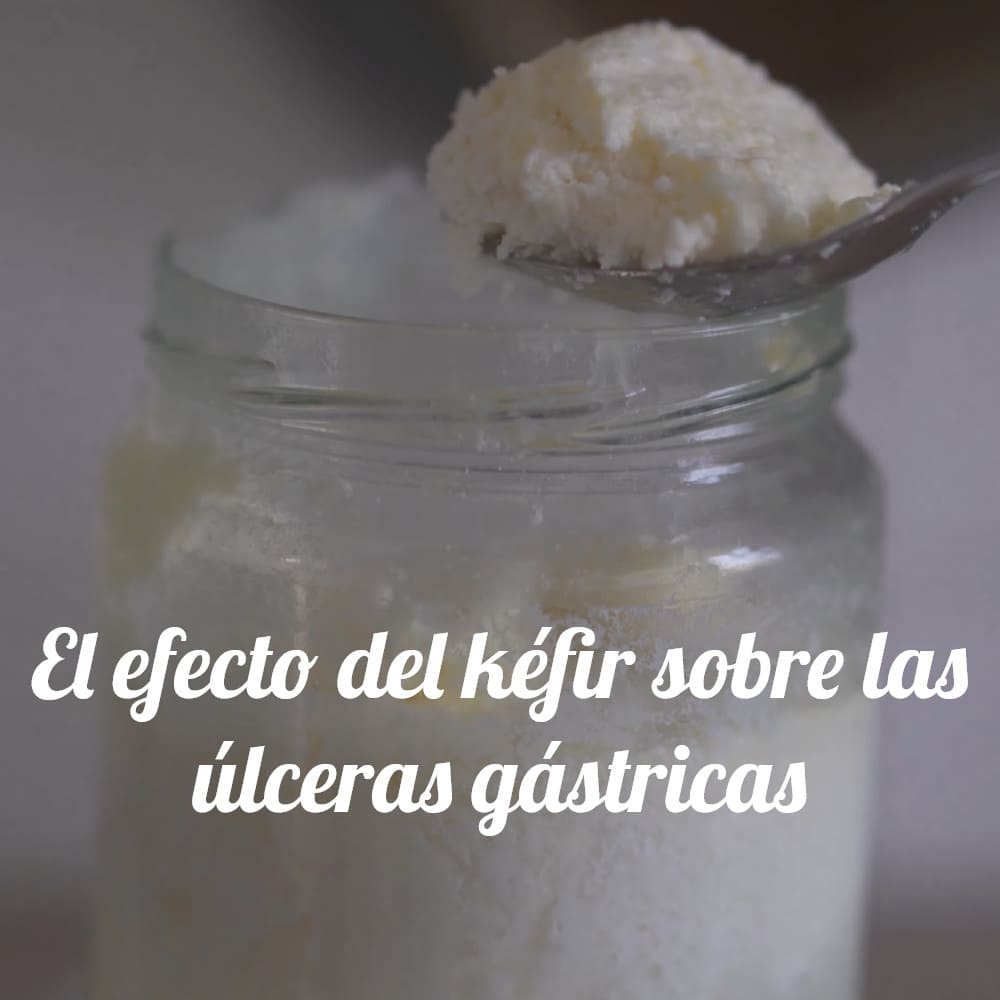Dairy fermented products have nutritious and delicious properties that help strengthen the gastrointestinal mucous membranes, and kefir which, although an acidic drink, has the potential to collaborate with the elimination of ulcerative pathologies that are usually caused by excessive acid production.
In digestive pathologies, certain types of foods that can worsen the clinic of the disease should be avoided, among some alternatives for the diet these dairy fermented products are useful, highlighting in these kefirs.
This, like other non-dairy fermented beverages (e.g. kombucha), have healing properties that help recover the health of gastrointestinal tissues generating a high rate of regeneration of mucous membranes after consumption. [1]
Kefir is a delicious milk drink and nutritious enough to strengthen the body and its immune capacity, it also contains a microbial broth capable of maintaining an internal environment for with anti-inflammatory and antimicrobial effects for the elimination of pathogens that would harm the condition of ulcerative lesions in any part of the organism. [2]
Can it bring benefits as a treatment of gastric or peptic ulcers?
Yes, in mouse models it was shown that the probiotic effect and antioxidant capacity of kefir stimulate ulcer healing, in addition to establishing a gastro-protective effect that prevents infections and inflammation, reducing damage to the gastric mucosa and the deepest tissues of the stomach.
The antioxidant capacity of kefir eliminates oxygen free radicals that exacerbate damage to mucous membranes and gastrointestinal tissues through oxidation, thus stopping the increase of ulcer. The drink also stimulates the healing capacity of tissues with the contribution of probiotics and nutrients. [1]
In addition to the antiulcerogenic effects, it offers other benefits that relieve other types of pathologies that may also lead to the formation of ulcers in other parts of the body.
Therefore, it can show benefits in the treatments of ulcerative pathologies of different origins or locations, with Lactobacillus Rhamnosus GG (LGG) being one of the most beneficial probiotics in the treatment of ulcerative colitis.
In addition, kefir can be used as an adjuvant in the treatment of gastrointestinal pathologies, and also as a possible alternative to other treatments for the healing of gastric ulcers. [1] [2]
What benefits can kefir probiotics bring in the control of Helicobacter pylori?
Probiotics are being considered as possible treatments, since several animal studies have shown their effectiveness in the elimination and prevention of disease by H. pylori bacteria, and those probiotics that are part of the composition of kefir have been linked in these studies that demonstrate their benefits for both gastrointestinal health and throughout the body.
Among some of the benefits to control parasitic infection are:
- Lactic acid bacteria can inhibit or kill H. pylori by acting as a bactericide.
- Bifidobacterium and Bacillus subtilis can inhibit parasite growth or fixation.
- Others such as Lactobacillus Johnsonii can interfere with colonization by affecting population growth and delaying parasite colonization.
- Lactobacillus Salivarius can eliminate H. pylori by binding to gastric cells and stimulating high lactic acid production that proliferates rapidly, and Lactobacillus Acidophilus only inhibits the parasite with lactic acid production.
Other types of probiotics can also be added to kefir during its preparation that, without affecting its qualities, can provide various therapeutic effects that provide beneficial effects in the treatment of ulcers and health in general. [2]
What use does it have during the application of triple therapy against Helicobacter pylori?
Kefir can support during treatment to control H. Pylori infection and aid in its eradication, as well as making treatment more tolerable by reducing the side effects of therapy. In addition to offering an antibiotic effect, avoiding infections that may worsen the symptoms.
H. Pylori is capable of causing gastric and intestinal ulcers, as well as gastritis and some malignant tumors. The health risk is quite high, but the healthy properties of kefir can prevent these pathologies from establishing not only for its ability to eradicate the parasite, but also for its healing and cancer prevention properties by inducing tumor cell apoptosis, or at least that has been proven in rats. [3] [4]
Triple therapy against H. pylori is very effective administered in conjunction with kefir, both for the elimination of the parasite and for the relief of the side effects caused by the treatment. This fermented milk can be consumed as part of the therapeutic regimen for 14 days, being even more effective than applying triple therapy alone. [5]
It is interesting the benefits that kefir offers for stomach health, but this is not the only place where it shows this ability to heal ulcers.
Does it also serve as a treatment for ulcers located in other areas of the gastrointestinal tract?
Yes, it can help heal ulcers located both in the gastrointestinal tract and on the skin, consumption provides the necessary elements to protect the wound and stimulate healing, although more studies are still needed to better understand these benefits. [2] [6]
Kefir is useful for treating ulcerative colitis (UC), where some probiotics contained in the drink such as Bifidobacterium and Streptococcus salivarius show an effective remission of ulcerative pathology, in addition to the addiction of LGG that has been very effective in controlling the disease.
LGG, due to its therapeutic effects, is being implemented in the production of fermented dairy products to improve their ability to treat diseases, such as UC. [2] [3]
Lactobacillus kefiri also seems to be effective in maintaining remission in patients with ulcerative colitis, being a good option for the treatment and prevention of relapses. [6]
A study demonstrated its usefulness as a diabetic foot ulcer treatment, which for 12 weeks led to a reduction in ulcer size, improving the proliferation and migration of human dermal fibroblasts (HDF) that are essential in wound healing, in addition to participating in the control of some chemical mediators related to this process. [7]
It is also useful to treat other pathologies that can also generate gastrointestinal ulcers such as Shigella Flexneri inhibiting their binding in intestinal epithelial cells, thus avoiding the possible formation of an ulcer. [8]
Amazing, isn’t it? I have also been surprised with these topics, not only with kefir on gastric ulcers, but all these contents that are really amazing and very useful.

